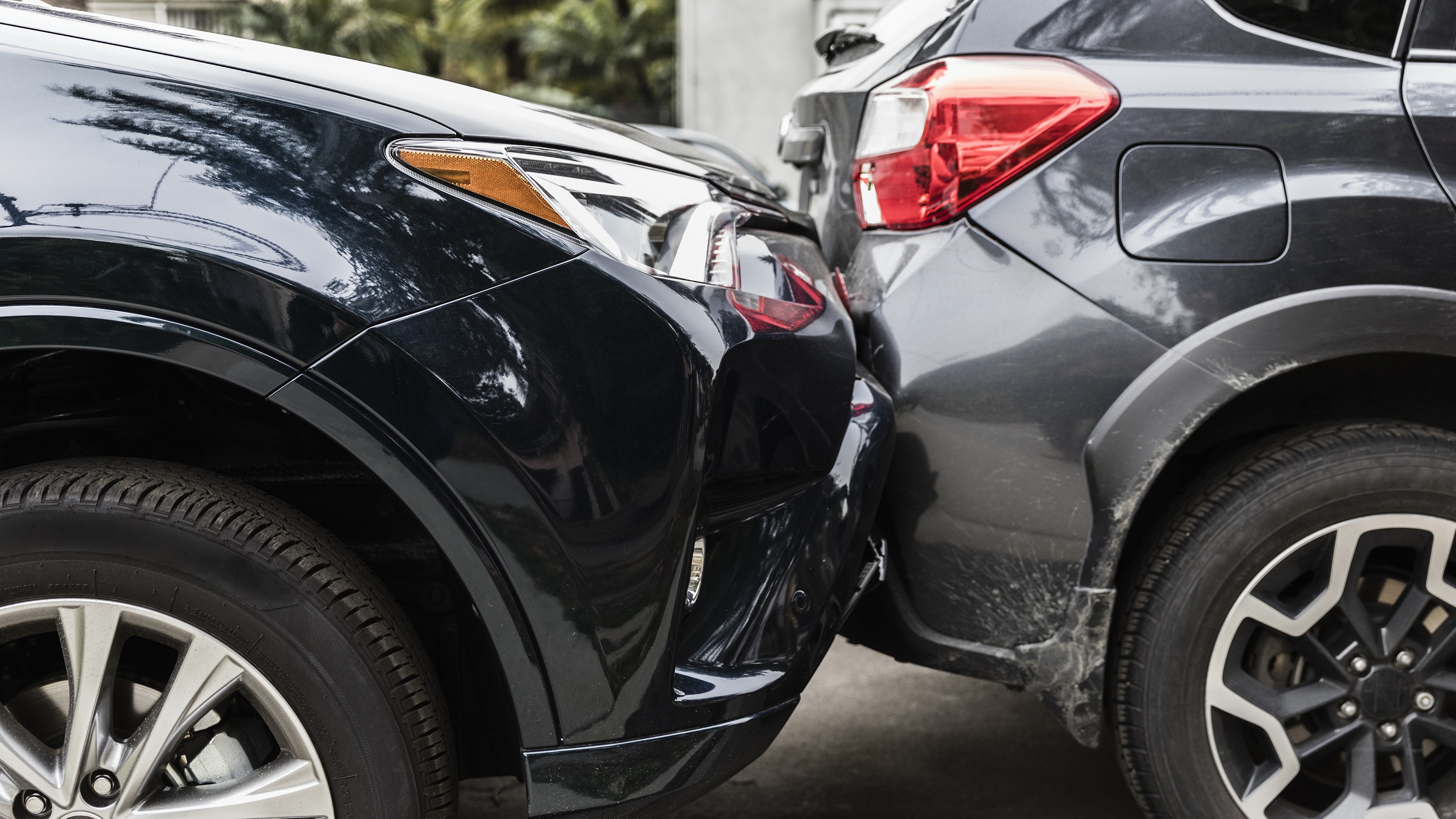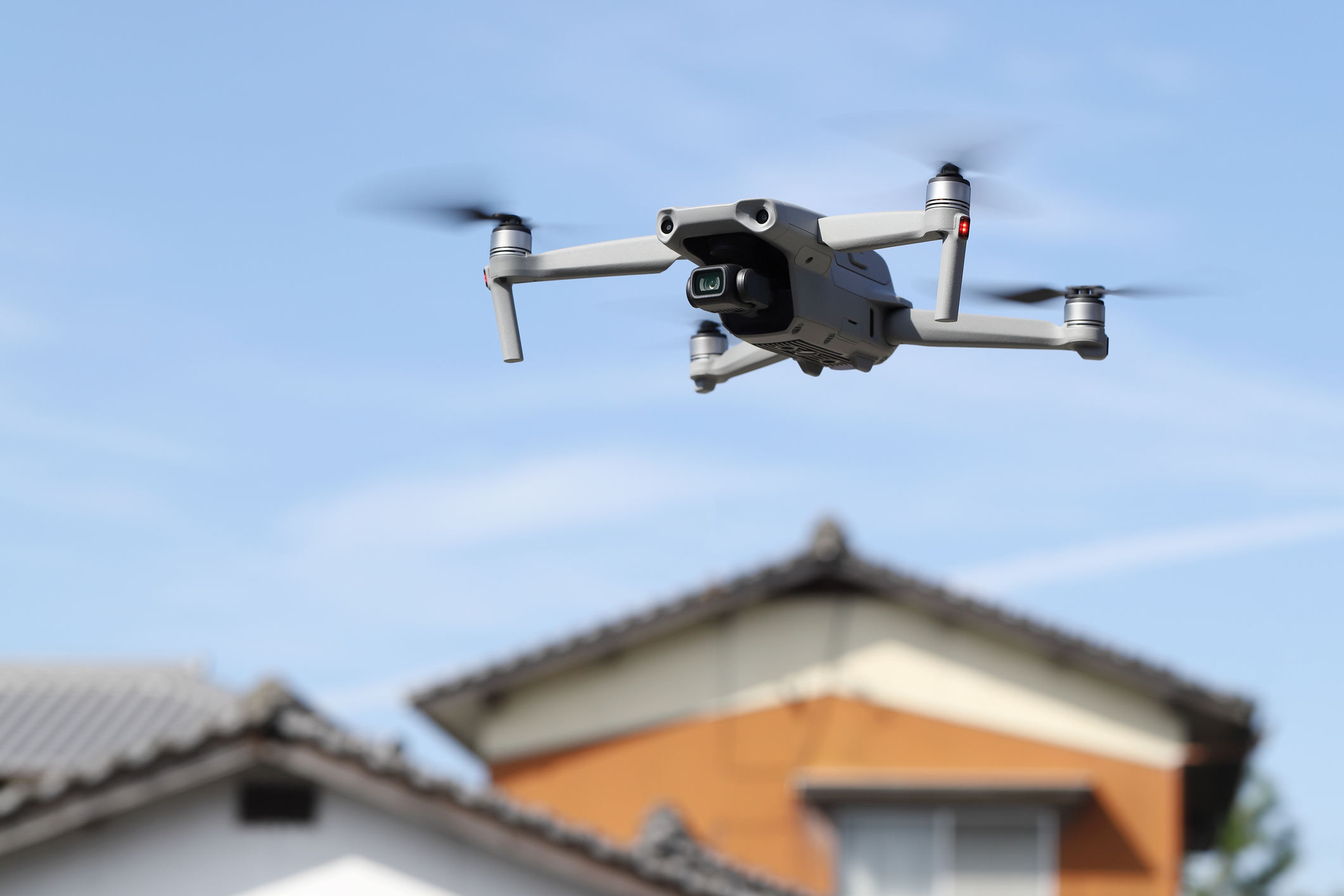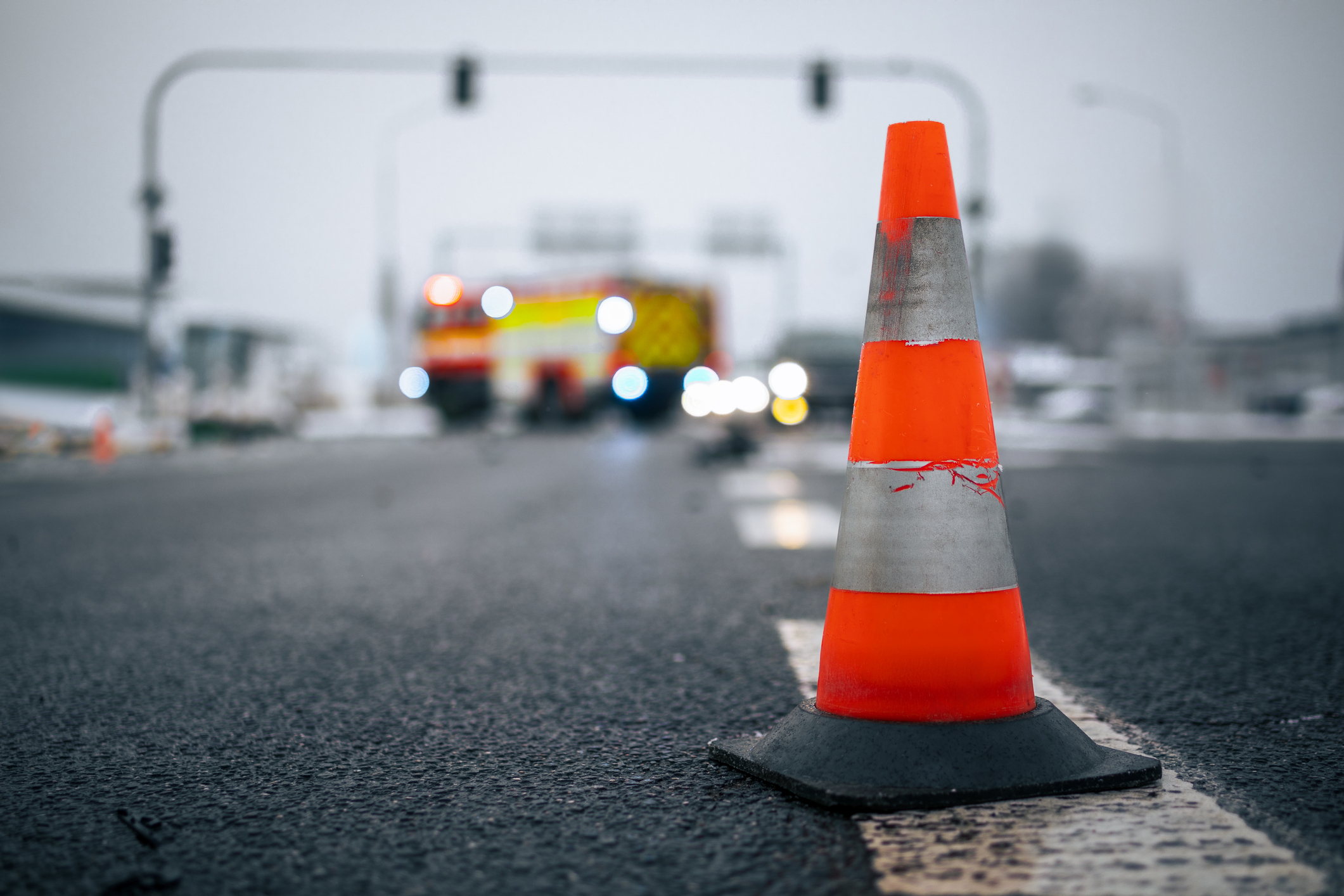Why You Need Renters Insurance
If you’re asking yourself, “do I need renters insurance?,” learn from my experience about why the coverage is worth it.


Profit and prosper with the best of Kiplinger's advice on investing, taxes, retirement, personal finance and much more. Delivered daily. Enter your email in the box and click Sign Me Up.
You are now subscribed
Your newsletter sign-up was successful
Want to add more newsletters?

Delivered daily
Kiplinger Today
Profit and prosper with the best of Kiplinger's advice on investing, taxes, retirement, personal finance and much more delivered daily. Smart money moves start here.

Sent five days a week
Kiplinger A Step Ahead
Get practical help to make better financial decisions in your everyday life, from spending to savings on top deals.

Delivered daily
Kiplinger Closing Bell
Get today's biggest financial and investing headlines delivered to your inbox every day the U.S. stock market is open.

Sent twice a week
Kiplinger Adviser Intel
Financial pros across the country share best practices and fresh tactics to preserve and grow your wealth.

Delivered weekly
Kiplinger Tax Tips
Trim your federal and state tax bills with practical tax-planning and tax-cutting strategies.

Sent twice a week
Kiplinger Retirement Tips
Your twice-a-week guide to planning and enjoying a financially secure and richly rewarding retirement

Sent bimonthly.
Kiplinger Adviser Angle
Insights for advisers, wealth managers and other financial professionals.

Sent twice a week
Kiplinger Investing Weekly
Your twice-a-week roundup of promising stocks, funds, companies and industries you should consider, ones you should avoid, and why.

Sent weekly for six weeks
Kiplinger Invest for Retirement
Your step-by-step six-part series on how to invest for retirement, from devising a successful strategy to exactly which investments to choose.
If you're kids or grandkids are heading to college or you're looking into renting instead of buying a vacation home, you've probably heard about renters insurance. While some landlords are starting to require it, if yours doesn't, you might be asking, "Do I really need renters insurance?" The answer is yes, and, to show why, here's how my policy helped me navigate an all-too-common problem renters face.
Last fall, my worst fear as a renter became a reality: A pipe burst in the apartment directly above mine, flooding my apartment. What made the situation even worse was that I got the news when I was out of town visiting family.
I panicked, even though I was told the situation was being handled. There were three questions running through my head that weekend: How many of my belongings were destroyed? How long would the repairs take? And what would my renters insurance cover?
From just $107.88 $24.99 for Kiplinger Personal Finance
Become a smarter, better informed investor. Subscribe from just $107.88 $24.99, plus get up to 4 Special Issues

Sign up for Kiplinger’s Free Newsletters
Profit and prosper with the best of expert advice on investing, taxes, retirement, personal finance and more - straight to your e-mail.
Profit and prosper with the best of expert advice - straight to your e-mail.
What does renters insurance cover?
Ever since I relocated to the Washington, D.C., area from Michigan, I’ve rented — and had renters insurance (some apartment complexes and landlords require tenants to have one).
In general, a renters insurance policy covers three basics: your liability, personal possessions and living expenses in the event your apartment becomes uninhabitable. The policies typically cover losses from a burglary, vandalism, windstorms and certain types of water damage — which is where things get confusing.
If my apartment had flooded because of a hurricane, I would have been out of luck, because most renters policies don’t cover flooding that comes from outside your building. But a burst pipe falls into the accident category, which is usually covered. To file a claim, I logged on to my Liberty Mutual insurance account from my smartphone. I received text message updates throughout the process from the agent handling my claim.
Use The Zebra to instantly compare multiple customized quotes to see how much you'd pay for renters insurance.
How much does renters insurance cost?
As with any other coverage, a renters policy comes with insurance deductibles and coverage limits that all factor into the cost of the policy and the amount you’ll be reimbursed. My policy, which costs $18.50 a month, covers $15,000 in personal property and provides liability coverage of $100,000 and guest medical coverage of $1,000. My deductible is $500.
According to Nerd Wallet, the average monthly premium for renters insurance is about $12 a month for $30,000 in personal property coverage, $100,000 in liability coverage and a $500 deductible.
If you have car insurance, you may be able to get a discount of about 5% by buying your renters insurance from the same company.
You may want more coverage, especially for personal property, if you have high-end furniture, designer clothes or a lot of tech in your apartment. Before you decide which policy is best for you, take an inventory of your belongings and how much they cost. You can either create a spreadsheet (which is something I should have done) or use an app such as Encircle to create your list.
Additional renters insurance coverage you might need
Like home insurance, renters insurance typically excludes flood damage. So, if you live in a flood-prone area, you may want to look into additional coverage to keep your belongings fully protected.
If you’re worried about flooding, review your local flood maps to see if you’re at risk. Go to the FEMA flood map and scroll down to the FEMA Flood Map Service center to find your community flood map.
If you live in a community that participates in the National Flood Insurance Program, you may be able to purchase a separate flood insurance policy from FEMA to protect your belongings. Flood insurance costs about $99 a year for $100,000 of contents-only coverage.
If you’re concerned about other disasters destroying your belongings, you should consider buying a renters insurance policy with a high personal property limit. Coverage amounts start as low as $15,000 and can go up to $500,000.
If you have expensive electronics or jewelry, you may want to add an insurance rider (if one is available) because your standard personal property coverage may not be enough to replace them. Coverage with higher personal property limits is usually inexpensive.
Keep an eye on leaks indoors or outdoors with the Moen Flo Smart Water Monitor water detector. Features automatic shut-off and seamless integration with your smart home system.
Renters insurance replacement coverage vs. actual cash value coverage
Once you’ve accounted for all your items, you’ll have to decide whether to get replacement coverage or actual cash value coverage. The former, which I have, replaces the items at full cost, and the latter factors in depreciation. Replacement coverage costs about 5% more, but Penny Gusner, at Insurance.com, says it’s worth it.
“You have to compare how much you would get for your used television or computer to how much it would cost to replace it with something new and similar,” says Gusner. You could end up spending more in the end if you go with actual cash value, she says. Some online companies are automatically giving replacement coverage as your only option.
It’s also important to consider any insurance riders that could be available to you. For example, my policy offered additional home computer coverage of $5,000, which I added to protect my expensive MacBook.
In the end, I filed my claim only to discover that the amount of my losses was less than my deductible. I wasn’t surprised, but I was hoping to get something for my troubles. I’ll definitely start keeping an inventory of what I have and make sure it’s up to date.
Do you need renters insurance?
You might not own your abode, but you own what's in it. If there was a fire, flood or if your home was burgled, you would benefit from having renters insurance to help cover the costs of replacing your clothes, computer and other valuables. The value of liability coverage can't be underestimated, either. If a visitor or repair person injured themselves, you could face a personal lawsuit.
If you work from home consider a stand-alone business insurance policy that can offer more robust coverage and with higher coverage limits. This type of policy can provide better coverage limits for business equipment and liability over a typical renter's policy. These policies are good for a business that has visitors coming and going.
Renters can also buy coverage from FEMA to cover damages caused by flooding that comes from the outside. This is wise to consider as regular policies don't cover this type of flood damage. In the case of a Presidentially declared disaster, renters are also eligible for temporary housing assistance and Critical Needs Assistance (CNA), a one-time payment that can help pay for life-saving and life-sustaining items such as prescriptions, food and diapers.
Related Articles
Profit and prosper with the best of Kiplinger's advice on investing, taxes, retirement, personal finance and much more. Delivered daily. Enter your email in the box and click Sign Me Up.

Rivan joined Kiplinger on Leap Day 2016 as a reporter for Kiplinger's Personal Finance magazine. A Michigan native, she graduated from the University of Michigan in 2014 and from there freelanced as a local copy editor and proofreader, and served as a research assistant to a local Detroit journalist. Her work has been featured in the Ann Arbor Observer and Sage Business Researcher. She is currently assistant editor, personal finance at The Washington Post.
- Rachael GreenPersonal finance eCommerce writer
- Donna LeValleyRetirement Writer
-
 Quiz: Do You Know How to Avoid the "Medigap Trap?"
Quiz: Do You Know How to Avoid the "Medigap Trap?"Quiz Test your basic knowledge of the "Medigap Trap" in our quick quiz.
-
 5 Top Tax-Efficient Mutual Funds for Smarter Investing
5 Top Tax-Efficient Mutual Funds for Smarter InvestingMutual funds are many things, but "tax-friendly" usually isn't one of them. These are the exceptions.
-
 AI Sparks Existential Crisis for Software Stocks
AI Sparks Existential Crisis for Software StocksThe Kiplinger Letter Fears that SaaS subscription software could be rendered obsolete by artificial intelligence make investors jittery.
-
 4 At-Fault States With No-Fault Insurance Rules You Should Know
4 At-Fault States With No-Fault Insurance Rules You Should KnowThink you live in an at-fault car insurance state? These four still have some tricky no-fault insurance laws you should know about.
-
 Is There a Downside to Switching Your Insurance Frequently?
Is There a Downside to Switching Your Insurance Frequently?You keep finding lower rates every time you shop for insurance. Is there any reason not to take the better deal?
-
 No-Fault Car Insurance States and What Drivers Need to Know
No-Fault Car Insurance States and What Drivers Need to KnowA breakdown of the confusing rules around no-fault car insurance in every state where it exists.
-
 Why Your Home Insurance Might Not Protect You If Someone Else Lives There
Why Your Home Insurance Might Not Protect You If Someone Else Lives ThereLetting a relative stay in a second home or inherited property can quietly change your insurance coverage and leave you exposed to costly liability claims.
-
 The 1-Month Rule for Setting Your Car Insurance Deductible
The 1-Month Rule for Setting Your Car Insurance DeductibleThe ideal car insurance deductible balances risk and savings. Here's how to find it.
-
 How Drones Can Affect Your Insurance Coverage
How Drones Can Affect Your Insurance CoverageHow insurers are using aerial imagery to assess homes, the backlash from policyholders and how state regulators are trying to rein in the practice.
-
 Does Your Car Insurer Need to Know All Your Kids? Michigan Cases Raise Question
Does Your Car Insurer Need to Know All Your Kids? Michigan Cases Raise QuestionWho you list on your policy matters more than most drivers realize, especially when it comes to who lives in your home.
-
 Is Home Insurance Tax Deductible?
Is Home Insurance Tax Deductible?With home insurance rates on the rise, you might be hoping to at least claim the cost as a tax deduction. Here's what you need to know ahead of tax season.

